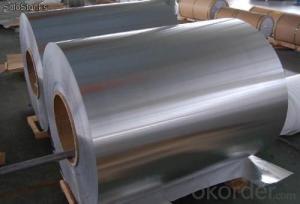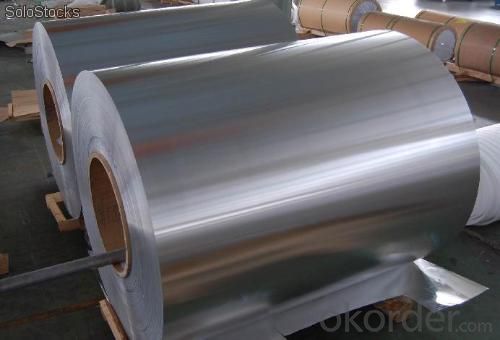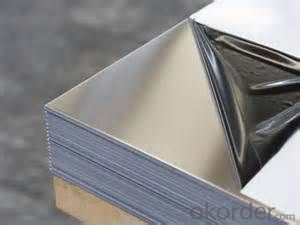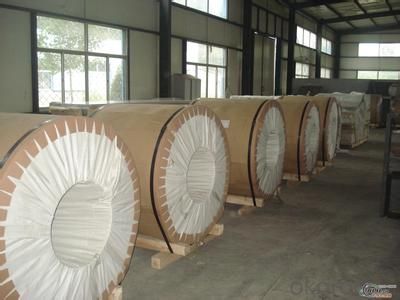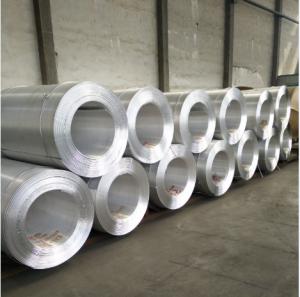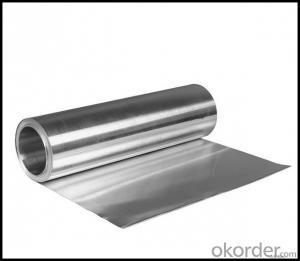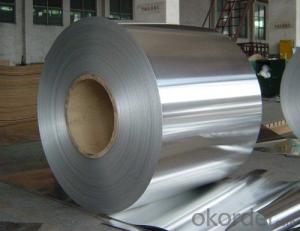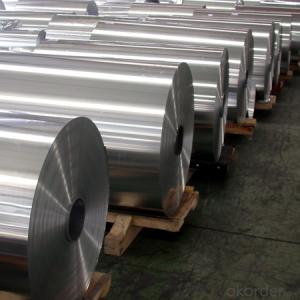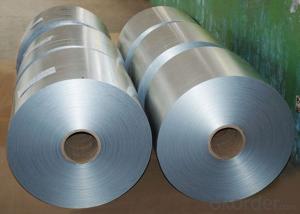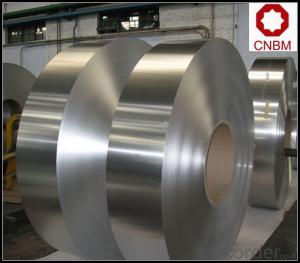7075 Aluminum Coils for Sale - Aluminum Coil Wholesale in China 2016
- Loading Port:
- Shanghai
- Payment Terms:
- TT OR LC
- Min Order Qty:
- 5 m.t.
- Supply Capability:
- 100000 m.t./month
OKorder Service Pledge
OKorder Financial Service
You Might Also Like
Specification
1.Structure of Aluminum Coil Wholesale in China:
Aluminum Coil Wholesale in China is designed for many field such as electronics, instruments, lighting decoration, packing industry, and house decoration, curtain wall, honeycomb-core panel, sandwich panel, aluminum composite panel, aluminum composite pipe etc..Aluminum Coil Wholesale in China is hard and everlasting under the blazing sun. You can choose the alloys as your habitation and we will do our best to meet your requests.
2.Advantages of the Aluminum Coil Wholesale in China:
• Smooth surface
• High manufacturing accuracy
• High strength of extension and yield
• Well packaged
• No marks, no scratch, no excessive oil
3. Aluminum Coil Wholesale in China
Alloy: | AA1050, 1060, 1070, 1100, 3003, 3004, 3005, 3105, 5052, 5083, 5754, 8011, 8006 |
Temper: | H14, H16, H18, H22, H24, H26, H32, O/F |
Thickness: | 0.2-100mm |
Width: | 30mm-1700mm |
4. Production of Aluminum Coil Wholesale in China
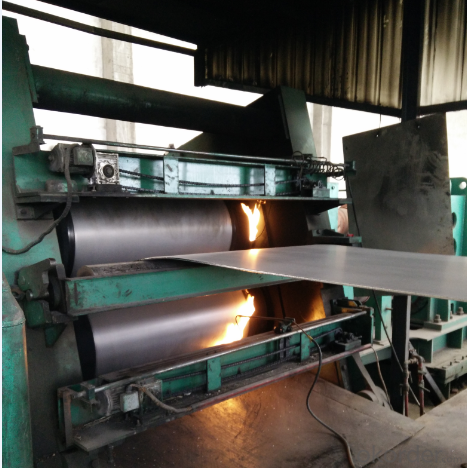
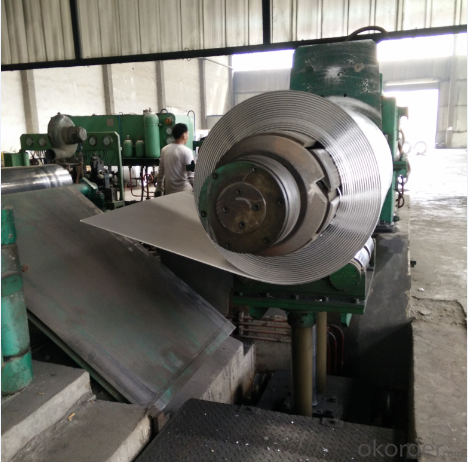
5.FAQ
We have organized several common questions for our clients,may help you sincerely:
① How about your company?
A world class manufacturer & supplier of aluminum coil and alloy blanks. Aluminum production base is comprised of 18 aluminum annealers, 10 coil and foil mills, 4 continuous production lines, 2 hot rolling production line and 3 prepainted lines.
Export 5000 tons per month to Asia, America and Middle East. Always do the best for our clients.
②Can you guarantee the quality of the products?
We are responsible for the quality of materials to get a long-term cooperation with clients in a reasonable period of time and we are glad to arrange and coordinate any third party inspection for you.
③What is the delivery time after purchase?
35 day after receiving client’s deposit or correct LC
- Q: Are aluminum coils suitable for outdoor signage and displays?
- Yes, aluminum coils are suitable for outdoor signage and displays. Aluminum is a highly durable and weather-resistant material, making it an excellent choice for outdoor applications. It is known for its ability to withstand extreme temperature variations, UV rays, moisture, and corrosion. Aluminum coils are lightweight, yet strong, which makes them easy to handle and install. They are also versatile and can be easily shaped and formed into various sizes and designs. In addition, aluminum has excellent printability, allowing for vibrant and long-lasting graphics. Overall, aluminum coils provide a reliable and cost-effective solution for outdoor signage and displays.
- Q: How much of a difference does it make? I recently bought a 700 SPS tactical in 308. It has the Houge pillar bedding stock. I love the tacky feeling rubber outside, but noticed that the fore end of the stock flexes a bit (enough to touch the free floating barrel.) I was wondering if the aluminum bedding block version of the same stock (or any other aluminum bedding stock) will be better? I know they cost more, and the experts claim they're great, but will an amateur shooter notice the difference? I like to target shoot, typically around 200 yards. BTW, I was also considering the Bell and Carlson medalist.
- Vote for the Aluminum yet somewhat might like a silver lined one bless by using a Catholic priest that emits holy water. That way in case they are additionally a vampire you nailed them.
- Q: Is there any specific regulation or standard that dictates the weight of an aluminum coil?
- <p>Yes, there are regulations and standards that dictate the weight of aluminum coils. These are often set by industry standards such as ASTM (American Society for Testing and Materials) and EN (European Norm). The weight of an aluminum coil can vary depending on its thickness, width, and length, and manufacturers must adhere to these standards to ensure consistency and quality. For example, ASTM B 209 specifies the standard for aluminum and aluminum alloy sheet and plate, which includes weight limits. Compliance with these standards is crucial for the safety and performance of products that utilize aluminum coils.</p>
- Q: How are aluminum coils used in the production of consumer electronics?
- Aluminum coils are widely used in the production of consumer electronics for various purposes. One common application is in the manufacturing of heat sinks. Heat sinks are used to dissipate heat generated by electronic components, such as microprocessors, to prevent overheating and ensure optimal performance. Aluminum coils are often shaped into fins or plates and then attached to these components, as aluminum has excellent thermal conductivity properties. Another way aluminum coils are utilized in consumer electronics is in the production of electromagnetic shields. These shields are designed to block or redirect electromagnetic interference (EMI) generated by electronic devices. Aluminum, being a good conductor of electricity, is an ideal material for creating these shields. The coils are formed into various shapes and sizes, depending on the specific requirements of the electronic device, and then integrated into the product's design to minimize EMI. Furthermore, aluminum coils are used in the production of electrical connectors and wiring within consumer electronics. Aluminum is lightweight, durable, and has good electrical conductivity, making it an excellent choice for these applications. The coils are often processed and shaped into thin, flexible strips or wires that can be easily integrated into the electronic circuitry. In summary, aluminum coils play a crucial role in the production of consumer electronics by being used in heat sinks for thermal management, electromagnetic shields for EMI protection, and electrical connectors and wiring for efficient electrical conductivity. Their versatility, combined with their thermal and electrical properties, make them an essential component in the manufacturing process of various consumer electronic devices.
- Q: What is virgin aluminum? I can't find anything about it, is it just another word for aluminum? Is there a difference?
- Aluminum that contains no recycled aluminum.
- Q: What is the average lifespan of aluminum coils?
- The average lifespan of aluminum coils can vary depending on various factors such as the quality of the aluminum, the environment it is exposed to, and how well it is maintained. However, on average, aluminum coils can have a lifespan of around 15 to 20 years. With proper installation, regular cleaning, and maintenance, aluminum coils can last even longer. It is important to note that regular inspections and upkeep are crucial in prolonging the lifespan of aluminum coils and ensuring optimal performance.
- Q: How do aluminum coils contribute to reduced maintenance costs?
- Aluminum coils contribute to reduced maintenance costs due to their corrosion-resistant nature. Unlike other metals, aluminum does not rust or corrode easily, which means that the coils require less maintenance and replacement over time. This leads to cost savings as there is less frequent need for repairs, coatings, or replacements, resulting in reduced maintenance expenses.
- Q: What are the different types of alloys used for aluminum coils?
- Aluminum coils are commonly made using several different types of alloys. The most frequently used alloy for aluminum coils is 3003, which is known for its excellent corrosion resistance and moderate strength. It finds its application in roofing and siding where high strength is not a requirement. 5052 is another alloy that is commonly used for aluminum coils. This alloy possesses good weldability and formability, making it suitable for a wide range of uses. In the automotive industry, it is often employed for body panels and fuel tanks. 6061 is a popular choice for aluminum coils due to its outstanding strength. It is frequently used in structural applications, such as aircraft parts in the aerospace industry and structural components in the construction industry. Additionally, other alloys like 1100, 5005, and 8011 are also used for aluminum coils. Each of these alloys has distinct properties and characteristics that make them suitable for different applications. For instance, 1100 is known for its high electrical conductivity and is commonly used in electrical applications. On the other hand, 8011 is frequently utilized for packaging and food containers due to its excellent corrosion resistance. In conclusion, the various alloys used for aluminum coils include 3003, 5052, 6061, 1100, 5005, and 8011. These alloys possess different properties and characteristics, making them suitable for a wide range of applications across industries like automotive, aerospace, construction, and packaging.
- Q: This question asks for a comparison between single-coil and multi-coil aluminum tubes, highlighting their differences.
- <p>Single-coil aluminum tubes are made with a single layer of aluminum wound into a cylindrical shape, offering simplicity and ease of manufacturing. They are typically used in applications requiring basic heat exchange or formwork. In contrast, multi-coil aluminum tubes consist of multiple layers of aluminum wound together, which can provide greater strength and durability. They are often utilized in more demanding applications where higher pressure resistance and thermal efficiency are required, such as in high-performance heat exchangers or industrial processes. The multi-coil design also allows for better heat distribution and can handle more stress without deformation.</p>
- Q: Describe the different methods used to produce aluminum coils.
- <p>Aluminum coil is produced through several methods, primarily involving the process of rolling. The main methods include: 1) Hot rolling, where aluminum slabs are heated and rolled into coils at high temperatures. 2) Cold rolling, which involves rolling aluminum at room temperature to achieve thinner gauges with higher precision. 3) Continuous casting and rolling, a process where aluminum is cast and rolled in one continuous operation, optimizing production efficiency. 4) Twin-roll casting, a method where molten aluminum is cast directly between two counter-rotating rolls, forming a thin strip that can be coiled immediately. Each method has its advantages and is chosen based on the desired coil properties, thickness, and application.</p>
Send your message to us
7075 Aluminum Coils for Sale - Aluminum Coil Wholesale in China 2016
- Loading Port:
- Shanghai
- Payment Terms:
- TT OR LC
- Min Order Qty:
- 5 m.t.
- Supply Capability:
- 100000 m.t./month
OKorder Service Pledge
OKorder Financial Service
Similar products
Hot products
Hot Searches
Related keywords
